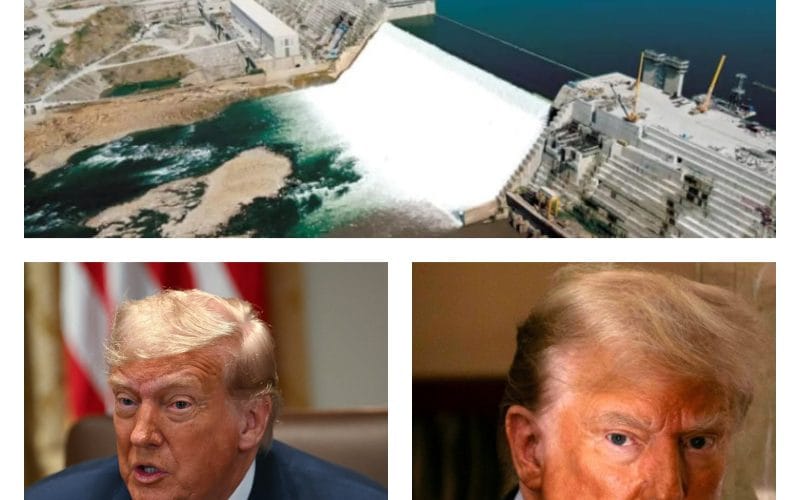U.S. President Donald Trump has reignited controversy by claiming the United States funded the Grand Ethiopian Renaissance Dam (GERD), despite repeated denials from Ethiopian officials and documented evidence that the project is entirely domestically financed.
Speaking during a televised meeting with NATO Secretary General Mark Rutte on July 14, Trump alleged that the dam, which he called a threat to Egypt’s water supply, was built using U.S. funds. He previously made a similar claim in June on his social media platform.
In response, the Public Coordination Office for the GERD in Addis Ababa strongly rejected the statement. Aregawi Berhe, head of the office, clarified that the dam has been under construction since 2011 with full financial backing from Ethiopian citizens, the government, and domestic resources. “There is no foreign funding, and certainly none from the United States,” Berhe said.
Analysts suggest that such repeated false claims, especially from high-profile figures, risk creating unnecessary diplomatic tensions between the Horn of Africa and global actors. Ethiopian commentators are calling for increased engagement with Washington to counter misinformation.
Prime Minister Abiy Ahmed, addressing parliament recently, confirmed that the dam’s construction is nearly complete and that the official inauguration will take place within two months. He also extended invitations to Egypt and Sudan to attend the ceremony—a diplomatic overture amid long-standing disputes.
The GERD, located on the Blue Nile, is the largest hydroelectric project in Africa. Its construction has cost over 180 billion Ethiopian birr (around $4.5 billion), including more than 20 billion birr raised through public donations, bond sales, and diaspora contributions.
Ethiopia maintains that the dam does not threaten Egypt’s water security, emphasizing that it is a development project vital to its electrification and economic growth. However, Egypt and Sudan remain skeptical, citing concerns over water flow and legal guarantees.
Negotiations between the three countries have dragged on for more than a decade without a final agreement. Ethiopia argues that Egypt seeks to preserve colonial-era water allocation treaties that disregard the rights of upstream nations.
As the GERD nears its final stages, Ethiopia’s government is doubling down on its commitment to African-led solutions and mutual benefit while urging external actors to refrain from distorting the facts for political reasons.



